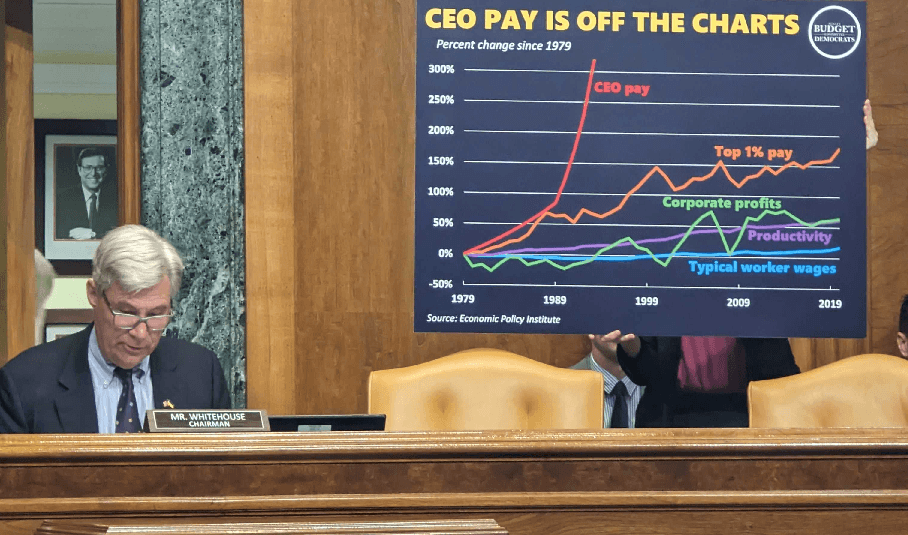Wednesday morning, the US Senate Budget Committee convened a hearing titled “Making Wall Street Pay its Fair Share: Raising Revenue, Strengthening Our Economy.” The session, chaired by Senator Sheldon Whitehouse (D-RI), aimed to address tax policies affecting large firms and wealthy investors. The discussion was sparked by the impending expiration of the 2017 Trump tax cuts.
Senator Whitehouse emphasized that the Democratic party is committed to reducing the deficit and reforming tax laws to ensure Wall Street pays its fair share. He highlighted that despite inflation, CEO pay remains disproportionately high, with 1% of Americans owning 54% of the stock market. Historically, corporate taxes contributed significantly to federal revenue but have drastically decreased over the years.
Ranking Member Senator Charles Grassley (R-IA) countered Whitehouse’s claims, arguing that the current review lacked bipartisan effort. He criticized Democrats for not eliminating tax loopholes when they had the power to do so, accusing them of demagoguery and hypocrisy.
Witness Testimonies
Three witnesses provided their insights: Dr. Joseph Stiglitz, Ms. Sarah Anderson, and Dr. Michael Faulkender. Dr. Stiglitz proposed four categories of tax reform aimed at creating a more equitable and dynamic economy. These included closing tax loopholes, eliminating distortionary provisions, curtailing activities with negative externalities, and focusing on non-distortionary areas like windfall profits taxes.
Ms. Anderson criticized financial institutions for extracting wealth from working families and funneling it into executive bonuses. She praised the 2022 Inflation Reduction Act for addressing offshore tax avoidance but called for further measures like taxing stock market transactions and addressing carried interest loopholes.
Dr. Faulkender, representing the Republican minority, argued that the US has a spending problem rather than a revenue problem. He claimed that taxing the rich would not reduce the federal deficit and proposed solutions like repealing green corporate welfare and reversing regulatory burdens.
Senatorial Debates
The questioning session was intense, with senators from both parties challenging the witnesses and each other. Senator Whitehouse questioned Dr. Stiglitz about tax avoidance as an industry, while Senator Grassley asked Dr. Faulkender if higher taxes on the wealthy would reduce the deficit. Senator Ron Johnson (R-WI) called for a simplified tax code, arguing that punishing success doesn’t work.
Senator Mitt Romney (R-UT) expressed frustration over the lack of previous discussions on tax code reform, calling the hearing a performance. He emphasized the need for spending cuts rather than tax hikes to address the deficit.
The hearing concluded with little agreement on solutions but a consensus that action is needed. Susan Harley from Public Citizen’s Congress Watch division appreciated the hearing for highlighting Wall Street’s tax avoidance tactics but stressed that these issues require more attention.
As citizens, it’s crucial to pay attention to these discussions, as they directly impact our economy and society. The hearing left many grappling with the complexities of tax law and policy, underscoring the need for informed public discourse.






